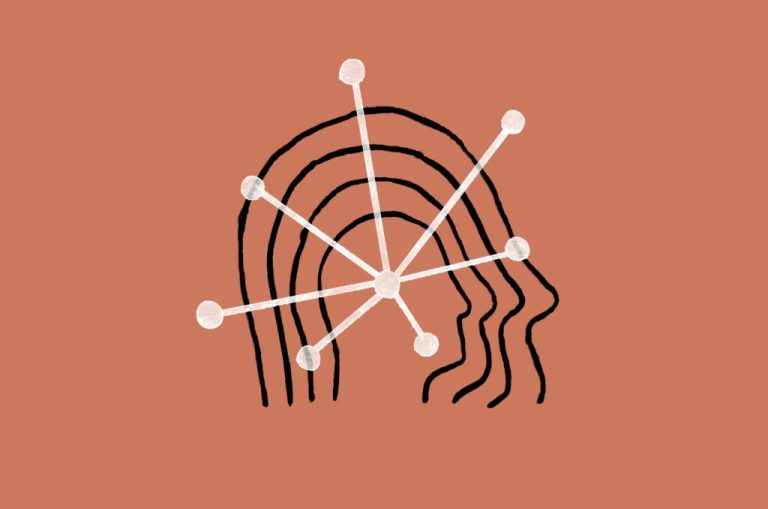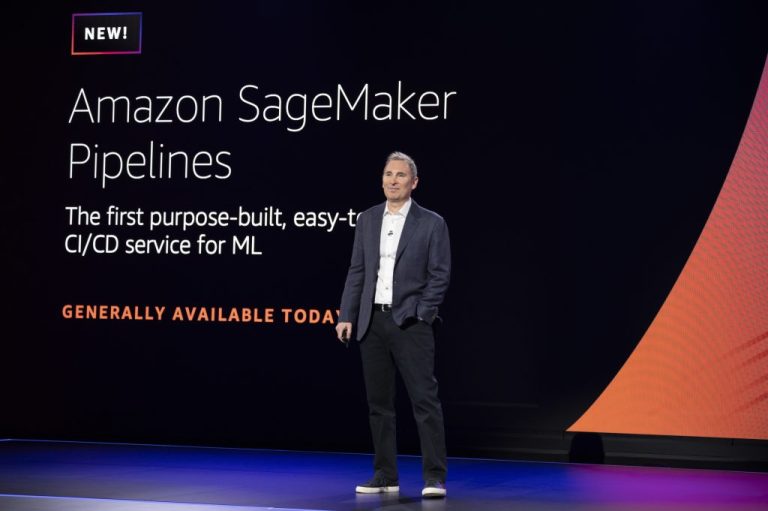Unlocking Low-Code Machine Learning and LLM Innovations with Piero Molino of Predibase
Insights on Low-Code Machine Learning with Piero Molino
During this year’s AI & Big Data Expo, AI News had the opportunity to speak with Piero Molino, CEO and co-founder of Predibase. The discussion focused on the significance of low-code solutions in machine learning and the emerging trends surrounding Large Language Models (LLMs). Predibase stands out as a declarative machine learning platform aimed at simplifying the development and deployment of machine learning models. Its mission is to democratize machine learning, making it accessible to both seasoned organizations and newcomers in the field.
The platform empowers companies with internal expertise, enabling them to enhance their capabilities and reduce development times from several months to mere days. It also supports developers looking to integrate machine learning into their products without extensive experience. By utilizing Predibase, developers can bypass complex low-level machine learning code, instead opting for a straightforward configuration file—specifically, a YAML file containing only 10 lines that outline the data schema.
General Availability Announcement
At the expo, Predibase declared the general availability of its platform. One of its standout features is the ability to abstract the intricate details of infrastructure provisioning. Users can effortlessly run training, deployment, and inference tasks on a single CPU machine or scale up to 1,000 GPU machines with minimal effort. Furthermore, the platform enables seamless integration with various data sources, including data warehouses and object storage, regardless of data structure.
“The platform fosters collaborative model development, with each model represented as a configuration that can possess multiple versions. This allows for analysis of differences and performance metrics,” Molino noted. Once a model reaches the necessary performance benchmarks, it can be utilized for real-time predictions via a REST endpoint or for batch predictions using SQL-like queries that include prediction functionalities.
Significance of Low-Code Solutions
The conversation pivoted to the critical role of low-code development in promoting machine learning adoption. Molino asserted that simplifying the process is vital to enhance industry acceptance and boost return on investment. By trimming development time down from months to just days, Predibase diminishes the barriers that prevent organizations from experimenting with new use cases, potentially unearthing substantial value.
“If every project takes months or years to develop, organizations won’t be motivated to investigate valuable use cases. Lowering these barriers is essential for experimentation, exploration, and increasing return on investment,” Molino explained. “With a low-code paradigm, development timelines are reduced to just a few days, facilitating easy attempts to evaluate different concepts and ascertain their value.”
Emerging Trends in LLMs
The dialogue also highlighted the growing enthusiasm for large language models. Molino recognized the significant potential of these models, which are fundamentally shifting perceptions of AI and machine learning. “These models are powerful and transforming how people approach AI and machine learning. In the past, gathering and labeling data was a prerequisite for training a machine learning model. Now, with APIs, individuals can directly query the model for predictions, expanding possibilities,” he stated.
However, Molino pointed out certain limitations associated with these models, including the costs tied to per-query pricing, slower inference speeds, and privacy concerns when utilizing third-party APIs. To address these issues, Predibase is implementing a solution that offers customers the ability to deploy their models in a virtual private cloud, ensuring enhanced data privacy and greater control over the deployment process.
Avoiding Common Pitfalls
As more companies initiate their journeys into machine learning, Molino shared valuable insights on typical mistakes to avoid. He stressed the necessity of thoroughly understanding the data, the use case, and the business context before diving into development. “One frequent misstep is having unrealistic expectations about what machine learning can achieve without proper groundwork,” he advised.
Many organizations face challenges in machine learning due to a disparity between their expectations and what is realistically attainable. Molino highlights that some companies dive into machine learning without a comprehensive understanding of either their data or the specific use case, both from a technical and business standpoint.
To tackle this issue, Predibase offers a platform designed to streamline hypothesis testing. This system integrates data analysis with model training, enabling users to assess whether models are suitable for particular tasks. With established guardrails, even those with limited experience can confidently explore machine learning.
The recent public launch of Predibase’s platform is a crucial step toward their goal of democratizing machine learning. By simplifying the development process, Predibase seeks to empower organizations and developers to fully harness the potential of machine learning.
If you’re interested in gaining further insights on AI and big data from leaders in the field, consider attending the upcoming AI & Big Data Expo in Amsterdam, California, and London, which will be concurrently held with Digital Transformation Week.
Machine learning plays a crucial role in boosting security for cloud-native containers, enhancing overall operational safety.
Innovative applications of machine learning are revolutionizing business operations, particularly in fields like finance and logistics.
Recent reports indicate that AI and bots have been misused to artificially inflate music streams, raising ethical concerns in the industry.
In the realm of space technology, collaborating with outsourced developers can yield significant benefits, driving forward development efficiently.
Stay updated with the latest trends in AI and technology.
Discovering the Latest in AI
Artificial Intelligence (AI) is transforming various industries, enhancing applications from chatbots to virtual assistants. This rapid advancement poses significant challenges to big tech, pushing them to innovate continuously.
Understanding AI Blockchain
The intersection of AI and blockchain technology invites a discussion on its true potential and implications for future innovations.
Categories
- Applications
- Companies
- Deep & Reinforcement Learning
- Enterprise
- Ethics & Society
- Industries
- Legislation & Government
- Machine Learning
- Privacy
- Research
- Robotics
- Security
- Surveillance
Island and McDonald Islands, Holy See, Honduras, Hong Kong, Hungary, Iceland, India, Indonesia, Iran, Iraq, Ireland, Isle of Man, Israel, Italy, Jamaica, Japan, Jersey, Jordan, Kazakhstan, Kenya, Kiribati, Korea (Democratic People’s Republic of), Korea (Republic of), Kuwait, Kyrgyzstan, Lao People’s Democratic Republic, Latvia, Lebanon, Lesotho, Liberia, Libya, Liechtenstein, Lithuania, Luxembourg, Macao, Madagascar, Malawi, Malaysia, Maldives, Mali, Malta, Marshall Islands, Martinique, Mauritania, Mauritius, Mayotte, Mexico, Micronesia, Moldova, Monaco, Mongolia, Montenegro, Montserrat, Morocco, Mozambique, Myanmar, Namibia, Nauru, Nepal, Netherlands, New Caledonia, New Zealand, Nicaragua, Niger, Nigeria, Niue, Norfolk Island, North Macedonia, Northern Mariana Islands, Norway, Oman, Pakistan, Palau, Palestine (State of), Panama, Papua New Guinea, Paraguay, Peru, Philippines, Pitcairn, Poland, Portugal, Puerto Rico, Qatar, Romania, Russian Federation, Rwanda, Réunion, Saint Barthélemy, Saint Helena (Ascension and Tristan da Cunha), Saint Kitts and Nevis, Saint Lucia, Saint Martin, Saint Pierre and Miquelon, Saint Vincent and the Grenadines, Samoa, San Marino, Sao Tome and Principe, Saudi Arabia, Senegal, Serbia, Seychelles, Sierra Leone, Singapore, Sint Maarten, Slovakia, Slovenia, Solomon Islands, Somalia, South Africa, South Georgia and the South Sandwich Islands, South Sudan, Spain, Sri Lanka, Sudan, Suriname, Svalbard and Jan Mayen, Sweden, Switzerland, Syria (Arab Republic), Taiwan, Tajikistan, Tanzania (the United Republic of), Thailand, Timor-Leste, Togo, Tokelau, Tonga, Trinidad and Tobago, Tunisia, Turkmenistan, Turks and Caicos Islands, Tuvalu, Türkiye, US Minor Outlying Islands, Uganda, Ukraine, United Arab Emirates, United Kingdom, United States, Uruguay, Uzbekistan, Vanuatu, Venezuela, Viet Nam, Virgin Islands (British), Virgin Islands (U.S.), Wallis and Futuna, Western Sahara, Yemen, Zambia, and Zimbabwe.







